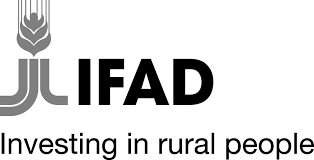Da Nang, Viet Nam, 25 June 2018 – By balancing higher yields and incomes with healthy ecosystems, a new report shows how the International Fund for Agricultural Development (IFAD), a UN specialized agency dedicated to smallholder agriculture development, and the Global Environment Facility (GEF), are benefiting millions of rural people in developing countries.
The report, The IFAD-GEF Advantage II: partnering for a sustainable world, is being released today at the Sixth GEF Assembly.

According to the report’s findings, IFAD currently facilitates access for governments to GEF funding in 24 countries, amounting to 32 GEF-funded projects with climate change as the dominant focal area, and utilising a budget of approximately US$161 million.
“This report shows that there is a clear IFAD-GEF Advantage. When we work together with rural communities, natural resources and ecosystems are protected, and people’s lives improve,” said Margarita Astralaga, Director of IFAD’s Environment, Climate, Gender and Social Inclusion Division.
An example of the synergies referenced in the report is found in Viet Nam, where an IFAD-GEF-Government partnership encouraged local communities to collaborate in devising payments for ecosystems services that offer them clear benefits and also contribute to reducing greenhouse gas emissions.
Another example in Peru illustrates how IFAD is using GEF funds to work with local communities in the High Andes on better water management, biodiversity conservation and more sustainable agricultural practices on over 20,000 hectares. While in Niger, IFAD and GEF are working in partnership through their Integrated Approach Programme in Food Security in Sub-Saharan Africa on sustainable family farming and better access to markets.
The report found that IFAD often amplified global environmental benefits flowing from GEF grants by adding its own financing, which increased impact and sustainability. For example, in Cambodia, Indonesia, Lao PDR, Malaysia, the Philippines, Thailand and Viet Nam, an IFAD grant designed to discourage local farmers from burning vegetation after harvesting or clearing land is building on an initial GEF project to protect peatlands.
“Since 2001, the partnership between IFAD and GEF has benefited millions of people who have improved their livelihoods and preserved valuable natural resources,” said Astralaga. “At the same time, they have adapted to the growing impact of climate change. In the years ahead, we will capitalize further on our complementary areas of expertise to reach millions more.”
IFAD has invested in rural people for 40 years, empowering them to reduce poverty, increase food security, improve nutrition, empower women and strengthen resilience. Since 1978, we have provided US$20.2 billion in grants and low-interest loans to projects that have reached about 476 million people. IFAD is an international financial institution and a specialized United Nations agency based in Rome – the UN’s food and agriculture hub
